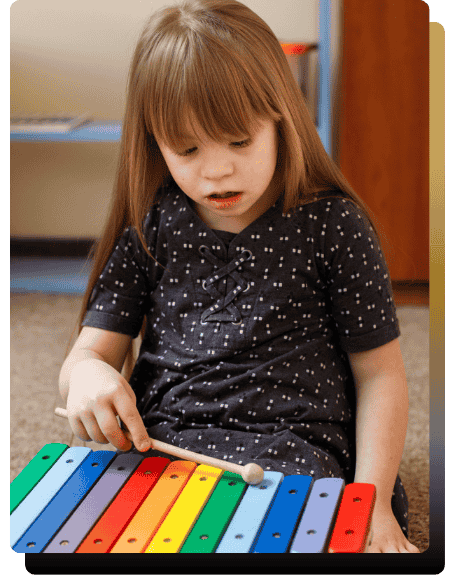What Are the 3 Main Symptoms of Autism?
Introduction
Autism isn’t something you can “see” – but it deeply affects how a person experiences the world. It’s a neurodevelopmental disorder (ASD), which means it affects brain development and function. It can influence how someone communicates, interacts, and responds to the environment around them.
When we say autistic, it means someone’s brain processes things differently; we’re talking about a spectrum. This is why you may hear the term Autism Spectrum Disorder (ASD). Some autistic people may need 24/7 care, while others live independently and lead whole, thriving lives.
But whether the signs are mild or more noticeable, there are three main Characteristics that usually show up in those with autism. Let’s explore them and understand how we at Standby24 support individuals living with autism across the UK.

1. Social Communication Difficulties
This is one of the most common signs of autism. It includes challenges with:
- Understanding body language and facial expressions
- Making eye contact
- Knowing how to start or keep a conversation going
- Understanding tone of voice, jokes, or sarcasm
For example, a child with autism might not point at things to show interest. An adult may avoid small talk or struggle with group conversations.
But that doesn’t mean they don’t want to connect – they might need support doing it in a way that feels comfortable and safe.
According to the National Autistic Society (NAS), around 700,000 people in the UK are autistic – more than 1 in 100. Many say that it’s not a lack of interest in people, but difficulty understanding “unspoken” rules of social interaction.
Standby24 works with individuals who experience social communication challenges, providing patient and consistent support, from helping children in supported living settings to guiding adults in community-based care.
2. Restricted and Repetitive Behaviours or Interests
Many autistic people show patterns of behaviour that feel repetitive or “rigid” to others. These behaviours may include:
- Repeating the same phrases or questions
- Following strict routines or getting upset by changes
- Repeated movements like rocking, hand-flapping, or spinning objects
- Deep, focused interests in specific topics or objects
These behaviours are not “bad” or “wrong.” For many autistic individuals, they’re calming, meaningful, or even joyful.
In fact, the NHS defines one of the key parts of the autistic disorder definition as “repetitive behaviours and highly focused interests.”
At Standby24, we see these unique patterns as part of a person’s identity. Our trained staff never try to “correct” or “remove” these behaviours. Instead, we understand and support them with care and respect.


3. Sensory Sensitivities
Imagine the buzzing of a light being too loud, the fabric of your shirt feeling unbearable, or the smell of perfume making it hard to think. That’s how sensory processing difficulties can feel for some people with autism.
Autistic people might be:
- Over-sensitive (hypersensitive) – loud noises, bright lights, or strong smells feel overwhelming
- Under-sensitive (hyposensitive) – they might seek out extra movement, pressure, or sensation
Sensory differences can affect:
- Food preferences
- Clothing choices
- Reactions to touch, sound, or movement
- Comfort in public places like supermarkets or schools
According to the Autism Research Institute, around 90% of people with autism have some form of sensory issue. These issues can manifest as atypical reactions to sensory stimuli like sound, light, touch, taste, and smell.
At Standby24, our support workers are trained to notice and adapt to these sensitivities. From creating calm spaces at home to adjusting how we communicate, we aim to reduce stress and increase comfort for those we support.
Why It’s Important to Recognise These Signs of Autism Early
Spotting the signs of autism early can make a big difference. With the right support, autistic children and adults can build confidence, independence, and meaningful relationships.
Some children show signs before age 2, and others may not be diagnosed until later in life, especially girls and women, who often mask symptoms.
If you notice signs in yourself or someone else, it’s okay to ask questions. Getting a diagnosis doesn’t label someone—it opens the door to understanding and support.
According to NICE (National Institute for Health and Care Excellence), early intervention leads to better long-term outcomes in education, employment, and well-being for individuals with autism.
How Standby24 Supports Autistic Individuals
At Standby24, we provide specialist care and support for people with autism and other neurodiverse needs. We work across the UK in:
- Community-based care
- Supported living units
- Residential settings
- Schools and family environments
Our focus is on person-centred care, which means everything we do is tailored to the individual, not just their condition.
We:
- Build routines that bring comfort
- Offer emotional and behavioural support
- Communicate in ways that match the person’s needs
- Respect each person’s strengths and interests
- Provide training for our staff on autism awareness and best practices
Whether someone is non-verbal or highly independent, we believe they deserve dignity, respect, and the chance to succeed in their life.
Conclusion
Autism isn’t something to “fix.” It’s a different way of thinking, feeling, and experiencing the world. When we understand the three main symptoms of autism – communication challenges, repetitive behaviours, and sensory sensitivities – we can begin to understand the individual’s pov & their life. And with the right support, autistic people can lead fulfilling, independent, and joyful lives. At Standby24, we’re proud to stand beside them, every step of the way.
Want to Join Us?
Whether you’re a family seeking support or a support worker passionate about complex care, we’re here to help.
Learn more about our services and values at Standby24
